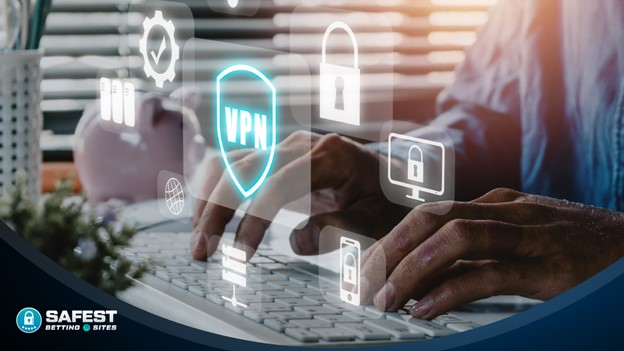
Unable to gain access to a specific website? A Virtual Private Network (VPN) will help you out. VPN is the key to remotely unlocking otherwise private networks. Undoubtedly, VPN is not an alien software now, as the number of VPN users is increasing rapidly every year. But is your personal data and identity secure while using the VPN?
Let’s find out with an in-depth overview of this advanced software.
What is a VPN?
Virtual Private Network routes internet traffic by making an encrypted tunnel between its remote server and your computer. The software further masks the actual IP address by creating a new anonymous IP that hides your virtual location. In short, your device connects to the server of a VPN service provider.
Hence, VPNs mask personal data from cybercriminals, Internet Service Providers (ISP), and third parties to ensure privacy while browsing online. So, how private are your browsing sessions via a VPN server?
Personal Server Tunnel Hacking
VPN’s high-grade encryption system protects the server tunnel from hacking. However, it doesn’t eliminate the possibility of hacking. Data leaks still happen.
Nevertheless, trusted service providers instantly audit their entire network to protect users from fraud or data breaches.
Anonymity
VPNs can enhance your privacy but can’t make you completely invisible online. It may be difficult but not impossible for other parties to identify and track your online activities. But fret not! The sites you use with VPN software will not recognize you or your connection.
Besides, don’t sign in to your Gmail account when browsing through the VPN server. Google can still pull the strings using its state-of-the-art tools to track you and your search history.
Pros
● VPN encrypts your data and secures your internet connection to shield your web activity
● A VPN service protects your personal details from third-party spying or hackers.
● It provides safe access to public Wi-Fi in hotels, cafes, restaurants, and airports.
● With VPN, you can browse any restricted overseas sites
● Its kill switch feature auto-quits preselected programs to prevent data exposure when your VPN connection interrupts
● You can connect from another country’s server to view and compare the costs of hotels or flights
● Many VPNs are compatible with iOS and Android mobiles
Cons
● Some countries prohibit the use of a VPN software
● A reliable and fully-secure VPN has costly subscription plans
● VPN always slowers browser speed
● It uses more internet data on phones
● Some websites can track and ban VPN users
● VPN will be unable to protect users from phishing or malware attacks
3 Common VPN Usages
Traveling
It is not suitable to use unreliable public networks while traveling overseas. Instead, activate a VPN on your devices to restrict prying eyes from accessing your private and browsing data. Moreover, you can seamlessly use the streaming platforms and websites you used in your home country if unavailable in your current location.
Business data sharing
Companies often use VPN software to provide server access to their staff working remotely or in multiple office locations. With VPN, employees can easily access files and programs on a dedicated office server without compromising valuable business data.
Online sports betting
One of the most common uses of VPN is playing on offshore e-sportsbooks. Some sports betting sites restrict gamblers from specific regions due to varying gambling regulations. However, betting on your favorite sport without an SSN won’t be a problem when you sign-up through a VPN server. You can access all sports markets, bet options, and bonuses on those online betting portals.
Tips for choosing a secure VPN
VPNs are safe when you choose a trusted service provider. So follow these tips to install the right VPN software on your device.
● Check safety features
Before buying any VPN subscription, review its safety features for maximum protection. It should include a kill switch, two-factor authentication, threat protection, and IP address encryption.
● Read privacy policies
Trusted VPN companies have transparent privacy policies, such as Nord VPN, Surf Shark, and CyberGhost. Indeed, security flaws can happen even while using the most secure VPNs. However, a reliable VPN service provider will apply on-time safety measures to fix leaks, if any.
You can go through online reviews to see if the chosen service provider has a history of data leakage and what steps they took.
● No Logs
A no-log VPN will not collect the users’ data logs, including search history, personal, downloading, and browsing information. In the company’s terms of services, you can check if it follows a no-log protocol or periodically purges the stored data.
Bottom Line
Security is the primary concern for anyone browsing online on a VPN server. VPN service providers are eager to build that trust by integrating various advanced features. Besides, they follow transparent privacy policies and ensure stringent steps during any online threat to protect its users. Thus, the security of modern VPNs is nearly impenetrable, which makes your web activities untrackable.
Lastly, the onus is on you to use only the most secure VPN with anti-virus software for complete protection.
Learn more about the best offshore betting sites at SBS.
Leave a Reply